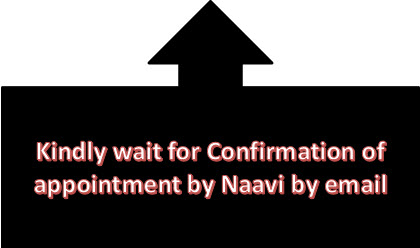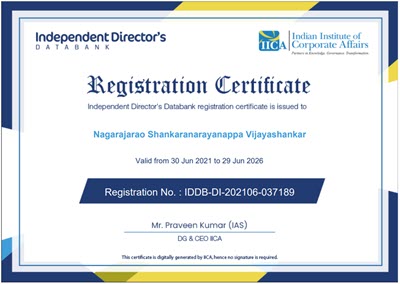 Madurai Bench of Madras High Court cancelled the bail grated earlier to a youtuber Sattai Durai Murugan for posting an offending video. The Court (Justice B Pugalendhi) observed that the records show Mr Durai Murugan to be a habitual offender in posting videos with derogatory comments against political personalities.
Madurai Bench of Madras High Court cancelled the bail grated earlier to a youtuber Sattai Durai Murugan for posting an offending video. The Court (Justice B Pugalendhi) observed that the records show Mr Durai Murugan to be a habitual offender in posting videos with derogatory comments against political personalities.
Though political sensitivities were involved in this case, in the process of adjudging the bail cancellation petition filed by the Police, the Court observed ” Intermediaries Duty bound to regulate content”.
The Court has inter-alia stated
“It is duty of the intermediaries to ascertain whether those videos are in accordance with their policies and guidelines and in terms of the contract and to block the channels if the videos are not in accordance with the terms and policies. … If it is not blocked or removed even after it was brought to their knowledge, the intermediaries are committing the offence under Section 69A (3) of the Information Technology Act,”
In delivering the judgement which related to a political comment, the Court referred to the possibility of posting of videos related to making of Bombs and Obscenity etc and quoted Albert Einstein on Atom Bomb.
The Court was assisted in the case by an amicus curie advocate K K Ramakrishnan. The amicus pointed out to the community guidelines formulated by the platforms and indicated that the action to block offending videos is part of the guidelines and the terms of the platform usage.
At a time when the Intermediary Guidelines of the Central Government are being vigorously challenged as being against the constitutionally guaranteed freedom of speech, this judgement making sweeping observations beyond the specifics of the case could raise further controversies.
The allegation involves comments made in Tamil and has certain political connotations and hence we would not like to comment on the same at this point.
However, it appears that invoking Section 69A(3) for the order was not perhaps appropriate. This section empowers the Government to issue certain directions in the interest of sovereignty and integrity of the nation etc… It does not automatically empower the police to act without such directions. Such directions can be issued by a “Designated Officer” who is the group coordinator of the Cyber law division
Recently, on June 1st, the Government had issued a draft amendment to the Intermediary Guidelines of February 25th , later withdrew it and again requested for comments on 6th June 2022
The essence of these guidelines (with respect to Digital Media) which are opposed in several courts including Madras High Court was to oppose the self regulatory and administrative mechanism suggested for regulating the digital content and imposing a code of ethics.
In the light of these developments at the national level, the judgement of the Madurai Bench appears to stick out as an aberration.
Further whether a judgement related to certain basic principles of constitution were relevant to be made in the cancellation of bail plea is also a point of debate.
Providing power of “Censorship” to the channel has its own counter applications and has to be therefore viewed more closely. The platform of twitter is already accused of biased decisions to block some messages and not block some other messages and the license for such arbitrary action is taken from the assumed power of regulation of the content.
Any such powers will convert the platform into “Not an Intermediary” as per ITA 2000 and hence will invoke the “Digital Media Ethics Code” which is now under scrutiny of the Supreme Court. Hence the current decision appears to interfere with an ongoing broader debate.
It would therefore be interesting to observe if this decision gets appealed against in a division bench or in Supreme Court.
In this bail related petition, the Court appears to have focussed more on the Intermediary liability. It would have been more appropriate if the Court had focussed on the grounds for cancelling the bail application.
Also there appears to be a confusion between the “Designated Officer” under rule 3 of the GSR 781 (E) notification and the nodal officer of an organization. The power of the nodal officer is only to make recommendations to the Designated officer requesting for blocking of any service. However, the judgement quotes provisions of Information Technology (Procedure and Safe guards for Blocking for Access of Information by Public) Rules, 2009, vide G.O(D)No.20, Information Technology (B4) Department, dated 18.03.2020. [The notification was not found on the website (Government of Tamil Nadu : Government Orders | Tamil Nadu Government Portal (tn.gov.in).] and indicates that the SP has been nominated as the nodal officer. The authority for such appointment at the state level may not be binding under Section 69A. Also if YouTube cannot be persuaded to remove any content, it cannot be considered as a ground for denial of bail to a person who has posted the content. The case against the YouTuber ought to have been made out only with his not meeting the earlier bail conditions if any.
By alluding to Section 69A, 79 and 84B, the judgement seems to have placed some confusion in the minds of the cyber law observers about the intermediary responsibilities which was perhaps avoidable.
(A detailed discussion on this may be taken up later)
Naavi











